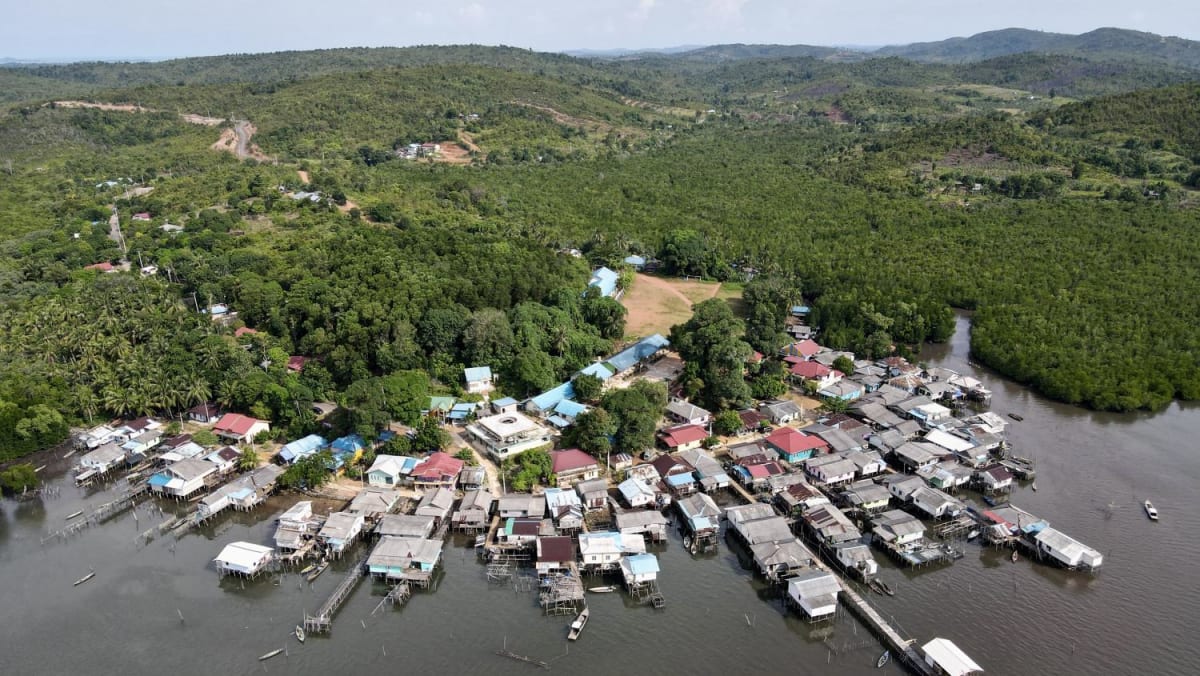
REMPANG (Indonesia) — Sitting on a creaky bridge linking stilt houses, Indonesian fisherman Sadam Husen fears for his people and their traditions, knowing they may be uprooted from their ancestral land to make way for a China-funded megaproject worth billions.
The Indonesian government recently told Rempang island’s 7,500 residents to pack their bags and leave by the end of September.
Residents say their families have been present on the South China Sea island for more than a century, mostly earning a living as fishermen, catching fresh snapper, shrimp, and sea cucumbers.
But under government plans the villagers, who include members of the Malay and Orang Darat tribes, are to be relocated away from their homes and replaced by a huge quartz sand processing plant.
Experts say the move will leave them jobless and potentially erase their way of life from the island forever.
Protesters used Molotovs, stones and glass bottles, according to officials and police, who responded with tear gas and water cannon.
Dozens of locals were arrested and hundreds of riot police were deployed.
Another protest was held outside the Chinese embassy in Jakarta.
‘THEIR EXISTENCE IS THREATENED’
The Indonesian government has said construction work on the plant will begin next year, and that it will transform the island into an “eco-city” attracting thousands of jobs and billions in investment by 2080.
Xinyi Glass did not respond to an AFP request for comment.
Beijing has poured billions into natural resources in Indonesia in recent years, particularly nickel on Sulawesi island.
The 17,000ha island near the Malacca Strait, one of the world’s busiest shipping routes, is rich in the quartz sand needed to make solar panels — and the government aims to develop an industrial zone there.
On Rempang, authorities have identified around 700 affected families.
Each has been promised 500sqm of land and a 45sqm house worth around 120 million rupiah (S$10,544) in compensation.
Islanders have been told they will first be housed in apartments in neighbouring Batam, each receiving 1.2 million rupiah monthly for half a year while the replacement houses are built.
“We all agree that Indonesia needs money to pour in, and one of the ways is through investment,” Batam city Mayor Muhammad Rudi told AFP.
“If they (China) get scared and leave, what will become of Rempang?”
But residents say they have received no guarantees the compensation pledges will be honoured — particularly as the government disputes their claim to have official deeds that prove their land or home ownership.
Mayor Rudi denied his staff had intimidated residents.
Amnesty International Indonesia told AFP the police deployment had “created a climate of fear”.
The government claims the project will take up 2,300ha, while leaving 10,000ha of conservation land untouched.
But it could damage Rempang’s marine life, pollute the area and over-exploit its vast sand resources, according to Walhi.
Residents are also wary that potential jobs will be occupied by more skilled Chinese workers.
“Even if our local workers are employed, they might be hired as blue-collar workers,” said Mr Timo, the community leader.
Like many other villagers, Mr Timo said he feared for his relatives’ graves and their possible desecration because of the project’s construction.
“We will never want to be relocated,” he said.
“Our hearts feel heavy. For us, this is the final price.” AFP